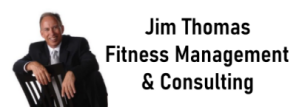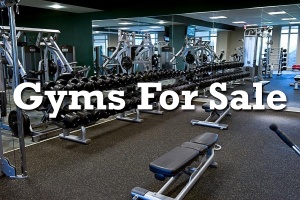“Why does my commercial insurance cost seem to be higher than other businesses?”
That’s usually combined with, “Am I carrying enough insurance and how come mine or theirs is more or less?” We get asked these questions in a variety of ways nearly every day. The real question you may be asking is why certain businesses and professions carry different types of commercial insurance.
Why are there differences in policies and premiums from one business to the next?
A landscaper may need fleet insurance for their company vehicles and an accountant may not need specialized auto insurance. An accountant probably carries professional liability or errors and omissions insurance that a landscaper doesn’t need.
The bottom line: Every business is different and there is no cookie-cutter approach to business insurance.
The most important thing to do is to work with your commercial insurance agent is to determine what coverage is necessary for your business.
How Insurance Costs are Determined
Business insurance premiums are arrived at by looking at the risk which is assumed by the commercial insurance company for coverage. The insurance company sends the policy to an expert called an underwriter. An underwriter helps determine the risk which could be incurred by the commercial insurance company and how likely a loss would be, based on the physical location of the property, the laws in that location, and other risk factors. Then the insurance company bases the premium for the business insurance policy on the analysis of that risk.
Why A Small Business Owner Needs Insurance
Insurance protects your business. If an accident happens and your business is sued, that money has to come from somewhere. It can be a payout from a robust general liability policy—or it could mean selling your business and possibly going into debt to cover a lawsuit. Accidents happen, and even if you’re not at fault, insurance is the risk control your business needs.
Insurance also helps build your future. Having enough to cover your assets in case of accidents or negligence is important, but when you expand, so does your risk. Want those choice clients? The big venues? They likely require a little more from you in the way of insurance coverage. Even if they don’t, and you’re taking on more by doing more, the possibility of happenings that outstrip basic, bare-bones coverage increases.
How to Lower Your Business Insurance Costs
There are many ways to reduce small business insurance premiums. Here are some of the best tips and strategies you can use to reduce your liability insurance costs.
1. Cut Unnecessary Coverage
Is your coverage adequate or are you overinsured? Insurance is designed to place an insured back into the same financial condition he/she was in before a loss occurred. Are your policy limits higher than necessary? Is your property insured at replacement cost or actual cash value? Are you paying for a separate product liability insurance policy when it’s covered by your general liability insurance? Go over the details with your agent to make sure you aren’t double-covered or paying for unnecessary insurance policies.
2. Look for Package Deals
Did you know that some insurers offer small and medium-sized businesses a bundle called a business owners policy (BOP)? A BOP often packages general liability, property insurance, and business interruption insurance at a more affordable price than purchasing them separately. It’s a great way for a small business to reduce your insurance costs.
3. Raise Your Deductibles
Raising what you pay for a deductible if an incident occurs can lower your upfront out-of-pocket costs. Look carefully at the numbers and determine if you can afford to pay a higher deductible if something does happen. You need to be careful you don’t choose a deductible amount that you can’t pay. Expenses do add up.
4. Pay Your Premium in Advance
If raising your deductible isn’t an option, can you afford to pay your premium in advance? Most insurance companies offer a reduced rate or a percentage off if you’re able to pay your annual insurance premium upfront.
5. Reduce Your Risks: Get a Safety Plan in Place
A business owner can reduce the risks their business faces by implementing some risk management policies. Here are a few ideas, in no particular order:
- Install a sprinkler system as well as smoke detectors and fire alarms in your building.
- Make it a company policy to keep the premises—including the stairs and elevator—and the electrical system in good working order and safe.
- Use a safe and keep as little cash on hand or in the cash registers.
- Always ensure that updated and proper safety equipment is required and used.
- Make sure that you have and maintain adequate lighting throughout your building and premises, including parking lots.
- Implement a safety plan: Ensure that employees are trained as to safe and proper lifting techniques and about general employee safety.
- Check employee driving records before hiring and re-check those records periodically.
- Invite your commercial insurance agent in to tour your business so he or she can make recommendations as well as to be in a position to advocate for your business should the need arise.
- Make it a company policy to take steps to ensure that updated and proper safety equipment is required and used at all appropriate times.
Implementing programs (like offering your employees a health club membership) to keep your employees healthy can even help lower costs of health insurance or workers’ compensation premiums.
6. Categorize Your Employees Properly
If you hire employees, you’re required to provide them with workers’ compensation insurance. But did you know the cost of workers’ compensation is influenced by industry classification? If your employees aren’t categorized properly, you could be paying higher premiums for their coverage. Likewise, every time an employee leaves, you need to update your insurance company to properly reflect costs.
7. Ask for Discounts
If you are looking to cut insurance costs, it doesn’t hurt to ask your insurance company if there are discounts available for your business. Can you implement a safety program? What about a loyalty discount for staying with the same carrier? Even if the answer is “no,” you don’t know until you ask.
8. Shop Different Carriers
If your current insurance company isn’t able to reduce your costs, you need to consider shopping around. Different insurance companies can offer specialty insurance unique to your industry. Small business owners can’t be afraid to find the right fit for their business.
9. Review Your Coverage Annually
If you only do one of the things on this list, it should be this one: review your coverage annually and keep your insurance agent in the loop if there are any changes in your business. You’d be amazed at the amount you can save.
Get Help From An Experienced Insurance Agent
There is no simple answer to reducing your small business insurance costs. Each business is inherently different. But you can sit down with your insurance agent and work with them to determine the right coverage for your business. If you don’t have a dedicated agent or someone you trust, give us a call. We can connect you with someone to help determine if you can reduce your costs while still protecting your business. Get a quote here.
Click here for more details on financing options or call 214-629-7223 or email jthomas@fmconsulting.net for more information. Or, apply now.
An Outsourced CEO and expert witness, Jim Thomas is the founder and president of Fitness Management USA Inc., a management consulting, turnaround, financing and brokerage firm specializing in the gym and sports industry. With more than 25 years of experience owning, operating and managing clubs of all sizes, Thomas lectures and delivers seminars, webinars and workshops across the globe on the practical skills required to successfully overcome obscurity, improve sales, build teamwork and market fitness programs and products. Visit his Web site at: www.fmconsulting.net or www.youtube.com/gymconsultant.






